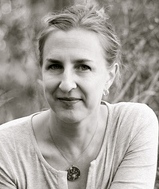Paranoia: Muslims Need Not Apply |
The United States Commission on International Religious Freedom (USCIRF) is being sued for religious discrimination. And for good reason. The government watchdog agency was created in 1998 to officially promote and protect religious freedom abroad, but it actually suppresses religious freedom, rather than supporting it. It should be shut down.
In 2009 Safiya Ghori-Ahmad, an American lawyer from Arkansas, fluent in Urdu and Hindi with a master’s degree in international development, accepted a USCIRF position as a South Asia policy analyst. The Commission hired her to conduct research on South Asia’s human rights and religious freedoms. According to the complaint, four weeks after she’d been offered the job, and after she had already left her previous job at the Muslim Public Affairs Council, the offer was rescinded. Instead, she was given a temporary 90-day position that began in late July 2009.
The suit alleges that the Commission withdrew its job offer because Ghori-Ahmad is Muslim. She was told, she says, that the job couldn’t start because of a hiring freeze—but she saw others hired during that same period. Once on the job, according to the suit, her supervisor told her that Commissioner Nina Shea “would be upset that USCIRF had hired her because she was Muslim and had been affiliated with a Muslim organization,” and then “suggested ways that Ms. Ghori-Ahmad could limit the negative impression her beliefs and background would create with members of the Commission.” The suit claims that the supervisor recommended that she push back her start date to avoid certain commissioners and “call in sick” on days when certain commissioners might be in the office, to avoid running into them.
This supervisor also allegedly told her to “downplay her religious affiliation,” and “emphasize that she was a mainstream and moderate Muslim” who “didn’t even cover her hair.” Legal briefs also claim: “Internal USCIRF email and discussions make clear that Ms. Ghori-Ahmad’s national origin and religion drove USCIRF’s ultimate decision to rescind its job offer. For example, Shea wrote that hiring a Muslim like Ms. Ghori-Ahmad to analyze religious freedom in Pakistan would be like ‘hiring an IRA activist to research the U.K. twenty years ago.’”
In an open letter to the Washington Post in June 2012, Ms. Shea claimed that she did not use the words “hiring a Muslim.” She countered that “the first 13 words of this quote—as is clear in the legal complaint—are not mine . . . What is especially problematic are the words ‘hiring a Muslim,’ which imply that I am a religious bigot . . . I voiced opposition to Ms. Ghori-Ahmad because of the bias evident in some of her writings.”
And yet such a comment would be consistent with Shea’s record. The suit describes Shea as “a long-time vocal critic of Islam as a religion, majority-Muslim countries, and Muslims generally.” She vehemently opposed the Cordoba House/Park51 project (the so-called “Ground Zero Mosque”), as did the USCIRF’s prominent former commissioner Leonard Leo. She is a prominent advocate for persecuted Christians who stated in a 2001 interview, “I believe that religious freedom is universal . . . but at the same time I find that religious freedom is only fully understood in this country—not even in the west, but in this country.” Despite such stances, Shea felt it appropriate to ask whether Ghori-Ahmad’s writings and advocacy betrayed a bias.
This is part of a pattern at USCIRF of questioning the motives and patriotism of American Muslims. Most recently, Mitch McConnell appointed M. Zuhdi Jasser as a USCIRF Commissioner. Jasser, a practicing Muslim, is an Arizona cardiologist who founded the American Islamic Forum for Democracy, a conservative lobbying group that promotes “the preservation of the founding principles of the United States Constitution, liberty and freedom, through the separation of mosque and state.” He also served as the narrator in the controversial film The Third Jihad, which alleges a conspiracy of radical Muslims to undermine the United States from within.
Why would an agency dedicated to promoting religious freedom abroad discriminate against religious minorities within the United States?








 Elizabeth Shakman Hurd teaches and writes on international politics, US and European foreign policy, law and religion, and the politics of the Middle East and North Africa, including Turkey and Iran, in global context. Her first book, The Politics of Secularism in International Relations (Princeton, 2008), won an APSA award for the best publication in religion and politics (2008-2010).
Elizabeth Shakman Hurd teaches and writes on international politics, US and European foreign policy, law and religion, and the politics of the Middle East and North Africa, including Turkey and Iran, in global context. Her first book, The Politics of Secularism in International Relations (Princeton, 2008), won an APSA award for the best publication in religion and politics (2008-2010).
Post new comment